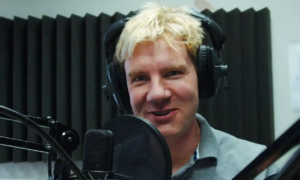Political leaders tend to believe that they take their own decisions. In fact, they are often dragged into action by the course of events, and enslaved by popular mythology that they themselves have promoted. With conflict looming between Russia and Ukraine, it is therefore important to understand the history of the two countries’ relationship. Fundamental differences exist between their historical mythologies, and between how they view themselves and each other.
In a televised address to the Russian nation on February 21st President Vladimir Putin all but declared war on the Ukrainian government in Kyiv. To the bewilderment of many observers, Mr Putin has recently become an amateur historian and started writing essays about Russia’s past. His address drew on the most important of those, published last summer, in which he insisted that Russians and Ukrainians are of the same Slavic nation. This revived thinking from before the revolution of 1917 which applied the term “Russian” indiscriminately to Russians, Ukrainians and Belarussians. It defined them respectively as Velikorosy, Malorosyand Belorusy (Great, Little and White Russians). The Soviet regime got rid of those titles, but retained and enhanced the traditional notion of “brotherly” relations between the countries, with Russians playing the role of elder brothers.



